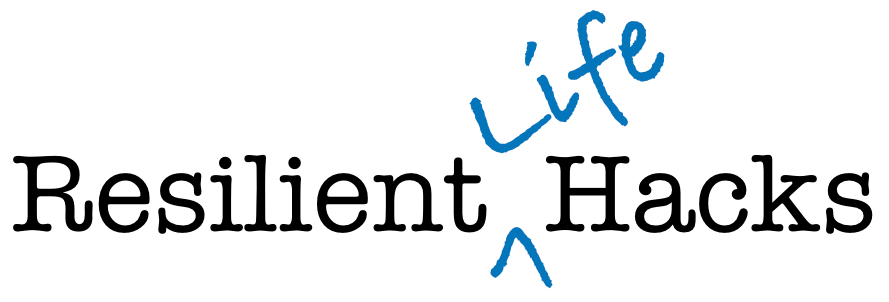Background
A key theme in the military veteran’s curriculum is applying resilience strategies and social support as these are potentially protective of Post-Traumatic Stress Disorder (PTSD) and suicide, yet also improve academic retention and student success. This resilience course, an introduction to psychological resilience, is offered in conjunction with learning theory and leadership courses whereby instructional objectives are shared between the courses to encourage transfer of learning, the ability to relate a concept from one subject area to another. The instruction uses a learner centered approach to problem based learning (PBL). PBL does not focus on defined solutions, rather it encourages group collaboration and communication by clarifying problems, brainstorming and structuring solutions. A cohort-based social framework provides an integrative support system that reduces hyper-arousal and makes use of “veteranism,” or comradery, and trust. This approach does not pathologize readjustment, but instead focuses on resilience and education to practice positive adaptation in a nonclinical setting.
SERV Program, The American Veteran
Case Study: A Hispanic Combat Veteran Returns to College
Resiliency and Retention in Veterans Returning to College: Results of a Pilot Study
Building upon the success of the veterans program, the semester-long classes were redesigned as short-encounter training for first responders, to include EMS, Fire, and Law Enforcement. A twelve-skill resilience program, again emphasizing social support, was developed as a one or two-day training or as a modular twelve-session training using a largely problem-based learning (PBL) delivery. These have been delivered in a variety of settings ranging from Peace Officer Safety Training (POST) training to fire and police academy experiences.
Suicides Affect Patients & EMS Providers, Journal of Emergency Medical Services (JEMS)
An Evidence-based Program for Improving and Sustaining First Responder Behavioral Health, Journal of Emergency Medical Services (JEMS)
The twelve resilience skill resilience program has more recently been optimized into eight and five skills allowing more depth and exploration in a less fatiguing encounter while sustaining the same instructional outcome results. The five skill approach provides simplicity whereas the eight and twelve provide more detail.
For most people, the family is core to social support and establishing common skills and a common resilience language greatly improves that experience. Thus, these resource materials are intended to help foster resilience and social support in the home, classroom, and workplace to help create a community of one.
2008
The program was first designed as three-credit semester-long courses, by Callahan, Marks, and through the support and efforts of the University Teaching Center (Riffe), for military veterans transitioning into a college setting. The resilience course used a learner centered approach to problem based learning (PBL) and "veteranism" to foster social support. These same twelve resilience skills used in the semester-long course were redesigned into a short duration training, of one to two days, for first responders. This short duration training brought awareness to the resilience skills and encouraged development of a social support system with the expectation the participants would complete the training following the awareness session.
2015
The twelve resilience skills were redesigned into a short duration training comprising eight skills through the efforts of Callahan, Dyar, Grill, and Marks. The eight skill program, like the twelve, uses problem based learning (PBL) to develop awareness of resilience skills that foster personal resilience and social support through problem solving, critical thinking, and collaboration. There is again an expectation that participants complete the training following the one and two day awareness sessions to develop skills supportive of self, family and community.
2017
The gamified learning approach, designed by Atkinson and Callahan, uses three formats to present five skills encouraging personal resilience and social support. To create a flexible delivery, the eight skill program is further simplified into these five skills to aid in short duration encounters with a diverse population of people. This approach lends itself to briefer encounters and the opportunity to involve the family, typically core to a social support system, yet is scalable to a community. A classroom STEM model, designed by Callahan, explores resilience and IoT programming with Node-RED using low cost Raspberry Pi technology.
2018
A problem-based learning approach is an evolution of the First Response Resilience series whereby personal challenges become the focus of collaborative problem solving using positive coping skills. The intent is learn the process for exploring the skills withthe expectation the social support system will continue the process. The goal is to recognize the social support system as a resource for dealing with personal challenges. Structured, training oriented, and adaptable to a broad range of ages and interests.
2019
With increases in teen suicide, there is focus on the resilient community through multiple agency training by Callahan, Dyar, and Marks. There is increased emphasis on the role of participants as mentors of positive-coping skills to their respective social support systems. And, there is increased use of distributed learning processes to reach more diverse populations.
2020
Including the "Hero's Journey" theme into the resilience curriculum encourages a story telling approach that provides familiarity and a sense of adventure. This is reflected in a more flexible format, including web-based app. Additional resources include a diagnostic app for teachers and instructional designers to aid in adapting curriculum for multiple formats, such as remote learning. Finally, there are STEM updates to resilience curriculum refective of technology changes, as well as the inclusion of the "Maker" theme to encourage bridges to resilience and STEM by learning-through-doing.
2023
The curriculum and especially the resource materials are streamlined to better faciliate group settings. These changes are also reflected in Hero's Journey web-based application.
2024
The curriculum and resource materials are rewritten to grade 8 to 9 reading level to better address the teen population. Further, a fictional text, Woody, has been authored and illustrated to a grade 4 reading level. Woody encourages the use of resilience skills and social support when dealing with change and personal growth.
2025
A creative look at social-ecological resilience using web camera sourced imagery.

